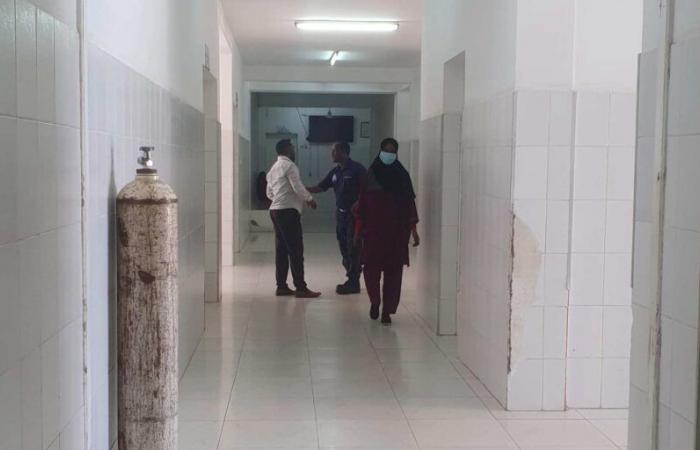Since July 1, around a hundred patients in Djibouti have been able to monitor their diabetes via a mobile application. It allows them online consultations, home care and offers a real-time blood sugar monitoring device for 27,000 Djiboutian francs (140 euros) per month. This is just the latest program from the e-health company Medyc, launched in 2019 by 27-year-old entrepreneur Moubarik Mahamoud. He is working on the digitalization of government services, the monitoring of pathologies by telemedicine and the provision of foreign specialists. In terms of digital health, “in Djibouti, everything has to be done,” he says.
The company was selected in late 2023 by Taiwanese start-up investment firm ACE Capital to receive €100,000. It intends to use this to develop its programs and thus improve access to care.
“There is a problem with monitoring HIV-positive people. They do not receive regular monitoring because of the stigma, because even within the medical profession, professional confidentiality is not always respected. It is the same in psychiatry.”
– Moubarik Mahamoud, founder of the e-health company Medyc
The country, with a population of around one million, has a total of 257 doctors, including 42 general practitioners, according to the 2022 Health Statistics Yearbook. The disparities are significant. “In addition to the problem of geographical accessibility, in the interior regions there are health centres that are closed because there is no staff, at least 1 or 2 positions per region,” explains the Dre Josette Dedoh, from the WHO office in Djibouti. The number of hospital beds in the regions is on average 80, while there are 897 in Djibouti city, where 80% of the population lives. The countryside is neglected, due to the lack of a sufficient number of patients to ensure the same salary as in the city, particularly in the private sector.
HIV, malaria and tuberculosis, but especially non-communicable diseases
Moubarik Mahamoud is currently tackling accessibility issues in the city itself. Djibouti’s system is made up of several tiers, including the National Social Security Fund (CNSS), which, in exchange for a contribution on employees’ salaries, provides them with free coverage for certain services and conditions. But with only a few health posts and pharmacies in the system, long lines can be a burden, especially for chronic conditions like diabetes.
“The idea is to move nurses to people with reduced mobility, take samples at home, and then a Malian endocrinologist carries out a teleconsultation to analyze the results and give advice,” explains the young man, indicating that the country currently has only three such specialists. The Medyc team then obtains its medication and test strips directly from the pharmaceutical supplier, and delivers them to the 300 to 500 patients.
Medyc has also used foreign specialists for other projects, such as the analysis of radiology results from the University Hospital Center (CHU) of Djibouti by Moroccan specialists from the Ibn Sina University Hospital. The young man also envisages the future possibility of monitoring certain discriminated diseases, such as HIV.
“There is a problem with monitoring HIV-positive people. They do not get regular monitoring because of the stigma, because even within the medical profession, professional confidentiality is not always respected. It is the same in psychiatry,” he says. In total, 1,200 people are registered on the online platform – outside the Liberté program – with an over-representation of diabetes and hypertension among the pathologies.
While the government focuses on communicable diseases such as HIV, malaria and tuberculosis – classified as priorities – the population particularly suffers from chronic diseases linked to a sedentary lifestyle, unemployment and khat consumption. The two leading causes of death in 2019, according to the WHO, were ischemic heart disease and stroke, two terms referring to the obstruction of arteries in the heart, mainly caused by diabetes, cholesterol or blood pressure. Among children under 5, acute malnutrition is wreaking havoc, affecting 10% of the population according to UNICEF.
“In any case, it is common for patients to come to the consultation at an advanced stage of their illness, especially with chronic diseases and especially with non-communicable diseases,” emphasizes Dr.re Joumana Hermez, WHO representative in Djibouti. Added to this is the lack of training for doctors in detecting these pathologies, as well as the scarcity of specialists, which lengthens treatment times. It is therefore on long-term conditions (ALD) that Moubarik Mahamoud has decided to focus.
Digitalization on all fronts
The story begins in 2018 in Guinea, when the young Djiboutian, then a medical student, noticed the tendency of practitioners to track consultations and examinations using a messaging application. He decided to formalize the process. After several attempts and failures, he returned to the Horn of Africa during the COVID-19 pandemic and joined the first class of the Center for Leadership and Entrepreneurship (CLE). Very quickly, the missions followed one after the other and the government called on him. Support for the digitalization of the ministry’s health services, online communication tools for the CNSS, videoconference monitoring of high-risk pregnancies and automated reminders of childhood vaccines for the Dar al Hanan hospital: the applications of digital health are proving to be multiple and necessary.
The Dre Joumana Hermez supports: “Yes, digitalization will change the way we provide health services. These digital platforms can address many problems, even for training health workers.” Connecting Djiboutian patients could overcome the long travel distances to equipped centers or the risk of information loss in the paper-based care pathway. But in the face of this hope, the WHO representative insists on the need for adequate preparation, in particular to ensure the quality and confidentiality of the personal data collected, through the establishment of norms and standards validated by the authorities. A long and costly process, in a context where access to the network and digital tools remains difficult.
Around 85% of the inhabited territory is now covered by the 4G network, according to the government, but the internet access rate was 59% of the population in 2019 and only 4.4% of residents own a smartphone. Moubarik Mahamoud recognizes these connectivity limitations and had the idea of using Starlink. This independent satellite access provider, from Elon Musk’s American company, SpaceX, allows internet terminals to be installed without technical difficulties. The pilot project, in collaboration with the Ministry of Health, plans to install three devices which, connected to a computer and powered by solar panels, will allow local nurses to bring medicine by teleconsultation to the most remote places in Djibouti.
Follow the author on X/Twitter: @C_Lacave






